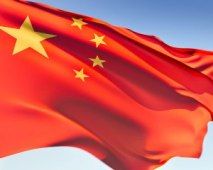 China's trade outlook worsened as exports dropped for the first time in 17 months putting pressure on growth prospects of the world's second-largest economy, even as Prime Minister Li Keqiang called for economic restructuring through reforms dubbed by media as 'Liconomics'.
China's trade outlook worsened as exports dropped for the first time in 17 months putting pressure on growth prospects of the world's second-largest economy, even as Prime Minister Li Keqiang called for economic restructuring through reforms dubbed by media as 'Liconomics'.
Exports dropped 3.1 per cent in June from a year earlier, the first decline since January last year while imports went down 0.7 per cent, General Administration of Customs said on Wednesday.
Exports stood at $174.32 billion and imports totaled $147.19 billion with a trade surplus of $27.13 billion for the month.
Total foreign trade shrank 2 per cent year-on-year to $321.51 billion in June.
Foreign trade neared $2 trillion in the first half of the year, up 8.6 per cent year-on-year, with exports at $1.05 trillion, up 10.4 per cent, and imports at $944.87 billion, up 6.7 per cent.
China's foreign trade growth rate has been slowing down in the first half of the year, as it grew 13.5 per cent in the first quarter year-on-year and 4.3 per cent in the second quarter, but just 0.3 per cent in May and 2 per cent in June, GAC spokesman Zheng Yuesheng said.
Zheng attributed the slump in the second quarter mainly to weak global demand, rising foreign exchange and labour costs, and various trade frictions.
China's foreign trade will face more challenges and difficulties in the second half of the year, and the ultimate solution would be to transform growth patterns and restructure commodities, Zheng said.
The trade data pointing to continued decline of foreign trade came as China's consumer price index, a main gauge of inflation, grew 2.7 per cent year-on-year in June, up from 2.1 per cent in May amid concerns over the economic slowdown while economic growth eased to 7.8 per cent last year, the slowest since 1999.
It slowed to 7.7 per cent in the first quarter of 2013 from the 7.9
Meanwhile Li, an economist himself said China is in a phase when it must rely on economic transformation and upgrading to maintain continuous and healthy development.
"It is very important to plan as a whole the need to stabilise growth, promote economic restructuring and advance reform at this stage," Li said while presiding over an economic meeting in Guangxi Zhuang Autonomous Region.
State-run CCTV termed it 'Liconomics', much on the lines of the term 'Abenomics', coined to describe new measures announced by Japanese Prime Minister Shinzo Abe to revive his country's faltering economy.
"By stabilising growth, we can create room and conditions for restructuring, while restructuring in turn unleashes potential for economic growth. The two will receive added impetus from reform as it will help clear obstacles," Li said.
Li called for more efforts to promote the integration of industrialisation and information technology application, and promote new urbanisation that puts people first.
Li said, China must quicken its reform in the areas of administration, taxation, finance and pricing with the aim to let the market mechanism play a better role, make private investment more active and the market more vigorous, state-run Xinhua news agency reported.



.jpg)






